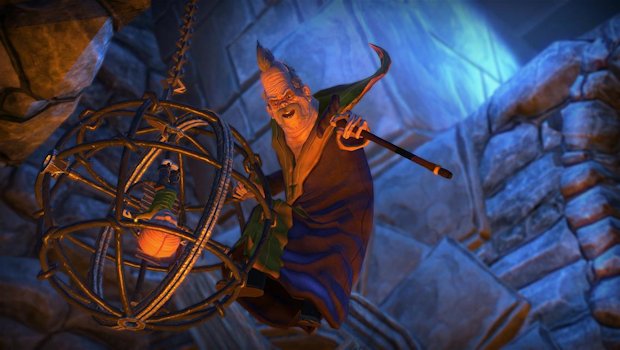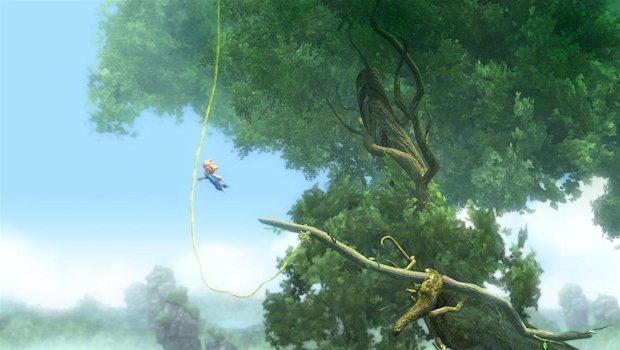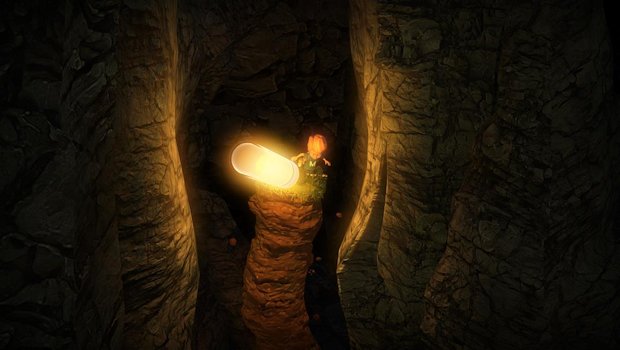Anyone that has a sibling has had the desire to make their brother/sister disappear from existence. Press Play’s Max: Curse of the Brotherhood, a puzzle platformer for the Xbox One, takes that idea and runs with it in a fantastical direction. Upon entering his room and seeing his younger brother in the process of destroying his things, he quickly looks up a solution on the internet to eradicate his brother from existence. Much to Max, and his brother’s surprise, the spell works and Felix is whisked away to another realm and an uncertain fate. Realizing that he probably shouldn’t have done that, Max jumps through the portal to rescue his brother.
Felix has been taken to rejuvenate the old and crusty wizard, Mustachio, and getting to his fortress is going to take more than just Max’s ability to run and jump in this platformer. With the help of an old witch, Max is given the ability to draw earth platforms using his magic marker. With this ability, Max can elevate himself and/or other objects to help progress through different areas, allowing him to solve the many environmental puzzles that permeate the world. And as Max gets closer and closer to Mustachio’s lair, his magic marker gains additional abilities, like creating branches or vines.
Each of the levels in the game is designed around the powers that Max has acquired, with the complexity ramping up more and more as the game progresses. By the end of the game, Max was creating platforms, branches, vines, streams of water, and shooting magic fireballs around the world in a variety of different creative combinations. And when the game gave me the chance to sit and figure out the puzzle in the environment, I found the game highly rewarding. It was when the game attempts to be a more traditional platformer, requiring perfectly timed jumps in conjunction with perfectly timed magic use, that the game fell apart.
Nothing is more frustrating in a game than the feeling that the game is unfair. Max: Curse of the Brotherhood has a handful of these instances and they nearly induced controller-tossing. Games like Rayman Legends often throw situations at the player they are unprepared for but dying in an instance like that imparts knowledge on the player that they can use to succeed on their next attempt. Max: Curse of the Brotherhood will throw you into these situations as well but the way these sequences are designed I felt I wasn’t failing because I didn’t know what to expect, or that I wasn’t learning how to progress, but rather that the controls for Max’s magic marker are flimsy and imprecise.
This lack of precision isn’t a problem when you have time to figure out a puzzle, trying different avenues for success, and the majority of the game was at this pace. But there were a handful of high pressure situations that resulted in death if you fail. Wonky control is an unforgivable problem that I can see causing many to quit playing out of frustration. And while that is a perfectly legitimate reason, it is also a shame because Max: Curse of the Brotherhood is mostly fun, utterly charming, and completely different from nearly every other experience on the new batch of systems at this point.
At the end of the day, Max: Curse of the Brotherhood isn’t the highly polished gaming experience that last gen gems Braid or Limbo offered. But it does offer up a fun few hours of playtime at a decent price point. Considering the current lack of new content to play on the new consoles, one could do much worse than helping Max rescue his brother from the evil Mustachio.


